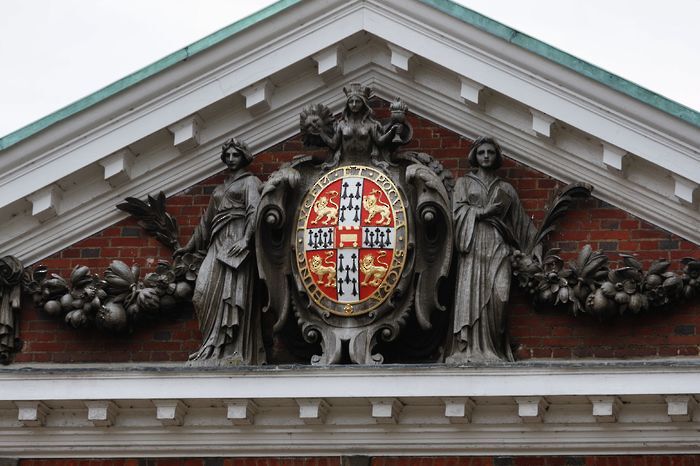New sabbatical teams to continue work on CUSU & GU merge despite student “apathy”
While voting in favour of further work on a proposed single union, student representatives highlighted the difficulty of engaging students on the matter

Next year’s sabbatical teams will further develop plans for a new students’ union with a view to holding a student-wide referendum on a final proposal at the end of Michaelmas term, CUSU Council voted this evening.
Student consultation on a proposal for a single union will, following a motion passed through by an overwhelming majority, continue throughout the Summer vacation, and therefore be passed over to CUSU and the GU’s new sabbatical teams.
The incoming sabbatical teams are now mandated, prior to taking up their roles, to produce a new proposal for a single students’ union by the first CUSU Council meeting of Michaelmas.
The only vote in opposition to the motion came from an incoming member of next year’s CUSU sabbatical team. Another incoming sabbatical officer chose to abstain from voting.
Tonight’s Council meeting was attended by a greater amount of graduate student representatives than is typical for CUSU Council. Student representatives, however, spoke of the “ambivalence” and “apathy” they had encountered in attempting to engage their constituents on the matter.
The vote followed a three-week period of student consultation on proposed plans to merge CUSU and the GU, some of the findings of which were included in the motion. A survey circulated by CUSU and the GU, which received 144 student responses, saw 78% of undergraduate respondents and 65% of postgraduate respondents support the proposal for a new single union.
A firm majority also supported the proposed structures for a new sabbatical team, executive committee, council and forums. Particular support for the introduction of a full-time BME sabbatical officer was highlighted in the motion.
It was also noted, however, that alongside such support there arose numerous concerns. CUSU President Evie Aspinall said that while there is “a strong majority” in favour of the changes, “there is obviously still work to be done.”
“The main concern on the undergraduate side,” she noted, “was having a combined access and education role.” Under the initial proposals for a joint union brought before both CUSU and GU Councils in May and taken to students during the consultation period, the sabbatical team would include two ‘Access and Education Officers’. At present, CUSU’s sabbatical team includes one Education Officer and the only full-time Access and Funding Officer in the country.
A prominent concern among graduate respondents, noted Aspinall, was that the new council and students’ union forums would be dominated by undergraduate representatives.
CUSU Education Officer Matt Kite, addressing the Council, admitted that “we [CUSU’s sabbatical team] get that this is a really difficult time of year to be doing this stuff - in an ideal world this would have happened in a full term when everyone was around - but there isn’t ever a good time to do it.”
Extending the period of consultation into the Summer, Kite explained, will mean that CUSU and the GU are forming the proposal “as thoroughly as [they] can”, ensuring around six months of work and consultation in total.
Aspinall explained that should the student body vote in favour of forming a new union in a referendum, the occurrence of which is subject to both CUSU Council and GU Council supporting such a referendum on finalised proposals, the 2020 Lent Elections would serve to elect the new union’s sabbatical team.
An incoming sabbatical officer, who later voted against the motion, expressed concern over this timeline, both in terms of its viability and the workload for the 2019/20 sabbatical officers. Aspinall responded that much of this work would be carried out by CUSU staff.
Student representatives were also eager to hear CUSU and the GU’s plans for increasing student engagement with the proposals moving forward.
Speaking as a representative for Trinity Hall students, one Council member explained that while the JCR committee “really pushed getting responses” to CUSU and the GU’s consultation survey, “we had a singular response, which was ambivalence.”
A Fitzwilliam MCR representative agreed, stating that they too had “struggled to get large numbers of people to respond.”
Aspinall noted that the proposals for a joint union will be included in CUSU’s annual report to The University Council, who in 2016 did not endorse CUSU’s aim to ensure a ‘formal merger with the Graduate Union’, as outlined in its Strategic Plan for 2014-2017.
At the time, it instead recommended that a review of ‘whether there should be one student union for all students at the University’ be undertaken in 2021.
 News / Uni members slam ‘totalitarian’ recommendation to stop vet course 15 January 2026
News / Uni members slam ‘totalitarian’ recommendation to stop vet course 15 January 2026 News / Cambridge bus strikes continue into new year16 January 2026
News / Cambridge bus strikes continue into new year16 January 2026 Science / Why smart students keep failing to quit smoking15 January 2026
Science / Why smart students keep failing to quit smoking15 January 2026 Interviews / The Cambridge Cupid: what’s the secret to a great date?14 January 2026
Interviews / The Cambridge Cupid: what’s the secret to a great date?14 January 2026 Comment / Will the town and gown divide ever truly be resolved?12 January 2026
Comment / Will the town and gown divide ever truly be resolved?12 January 2026










